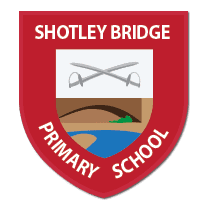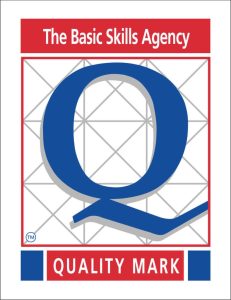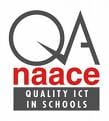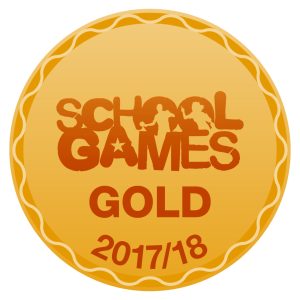At Shotley Bridge Primary School, we want our children to to be able to confidently communicate their knowledge, ideas and emotions through their writing and acquire a wide vocabulary to write for a range of contexts, purposes and audiences.
Writing Curriculum Overview
Our Writing Curriculum Overview outlines the essential details to ensure full coverage of the National Curriculum whilst providing our teachers with the tools required to support the development of efficient writers. These details include: –
- A broad and balanced range of core texts to be shared;
- Focused text types to exemplify key text features to support the application to each child’s own writing skills; and
- Grammar features to be taught in context with clear purpose
Teaching is planned around core texts, which are carefully selected to ensure exposure to quality literature, further develop cultural capital and engage in the work of a variety of authors. Every two weeks, the children will begin a new writing cycle giving the children at Shotley Bridge Primary the opportunity to write for a wide range of purposes.
Our Writing Cycle
In order for pupils to write clearly, accurately and coherently, adapting their language and style in and for a range of contexts, purposes and audiences, the Shotley Bridge Writing Cycle has been developed:
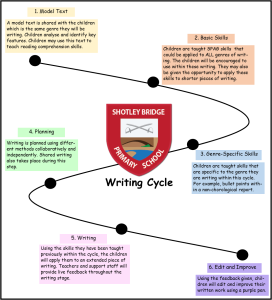
Subsequent lessons aim to:
- develop a wide and ambitious vocabulary which will be evident in their writing,
- learn about, practise and apply the knowledge of key grammatical features
- successfully translate orally spoken content to the written word
- develop planning skills to ensure clear intent when writing
- build confidence in own writing showcasing an increased level of independence, creativity and intent when writing
- know themselves better as a writer, through feedback
- self-evaluate, edit and improve writing
- use age-related writing structures with increasing confidence and fluency
- develop stamina when writing at length
- establish own flare as an author explaining intent
Our progressive curriculum aims to ensure all children become confident and effective writers as they move through the key stages, with a want to write and the knowledge to accurately and coherently, adapt their language and writing style and for a range of contexts, purposes and audiences.
